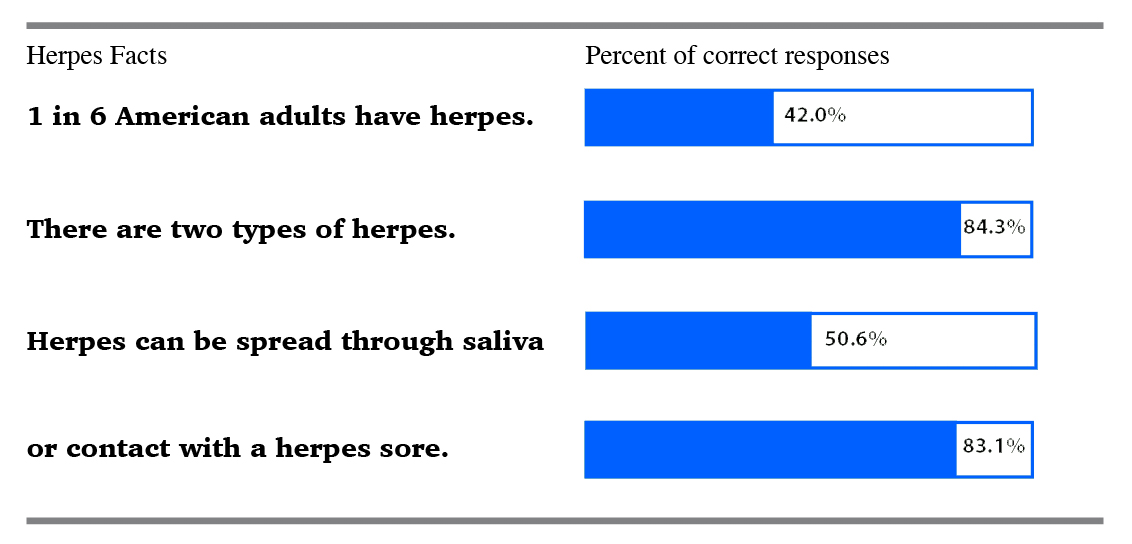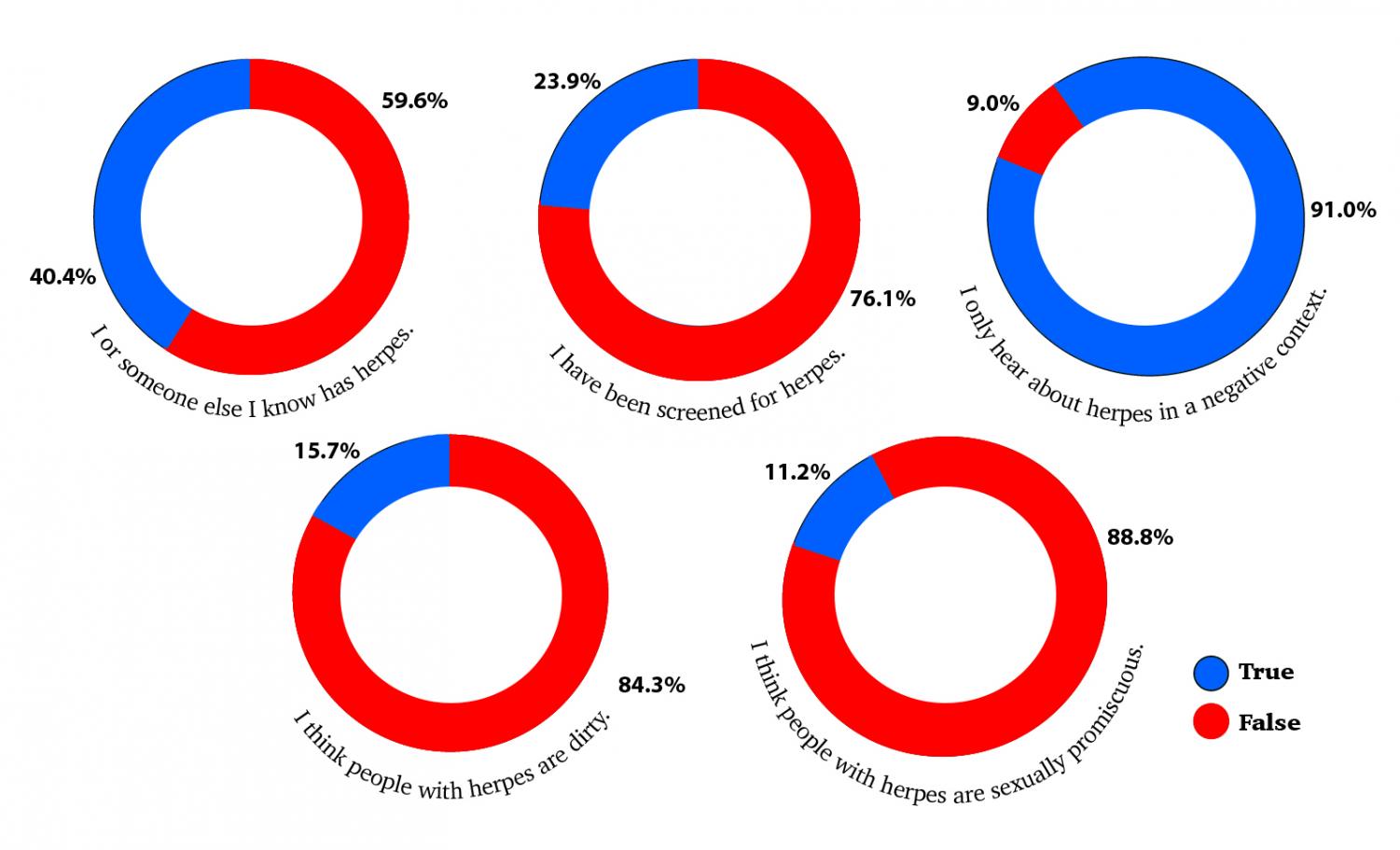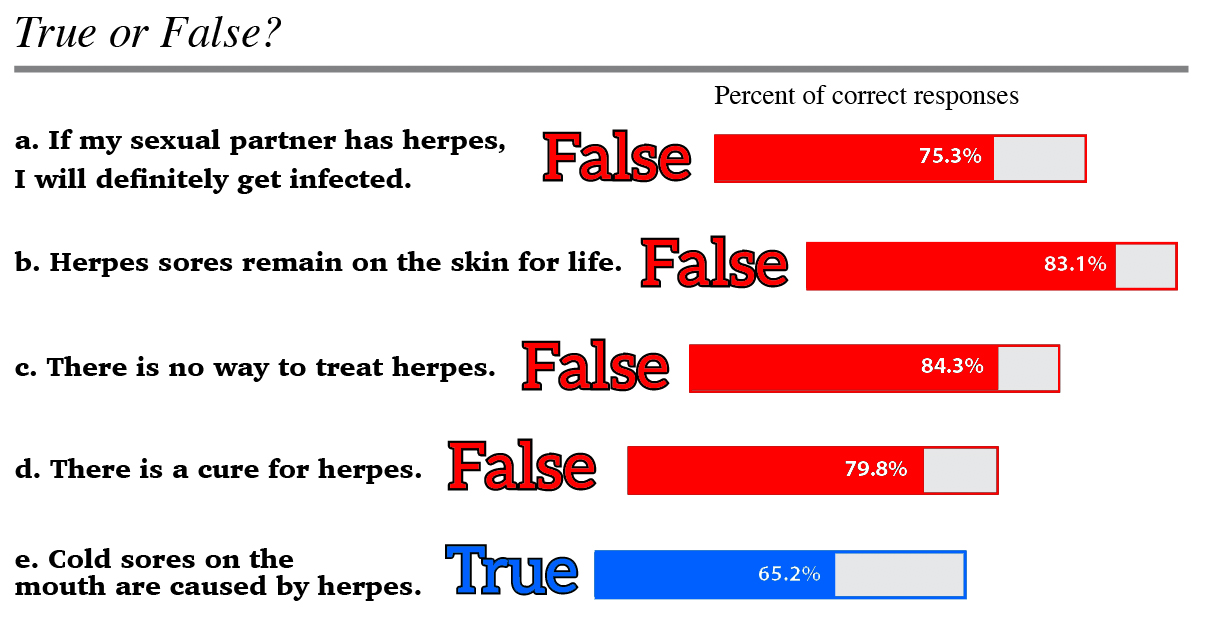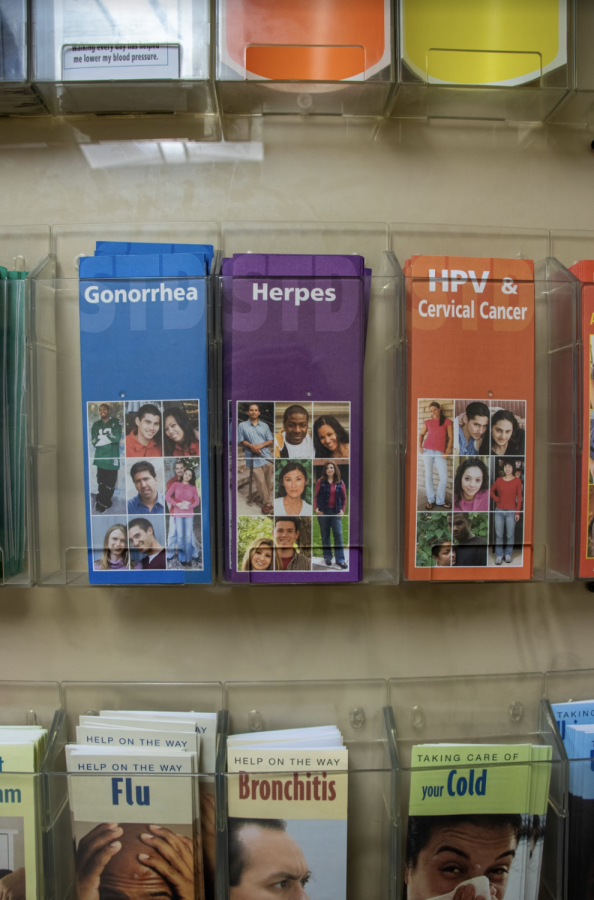How Herpes Affects the Fordham Community
An Observer survey of 89 Fordham students reveals participants’ knowledge of, perceptions about and experience with herpes
ANDREW DRESSNER/THE OBSERVER
Herpes is a highly common sexually transmitted infection (STI). About 1 in 6 American Adults have genital herpes.
October 30, 2019
Herpes is one of the most stigmatized sexually transmitted infections (STI’s), yet a recent survey of Fordham students reveals that our community is both well-informed about herpes and resistant to negatively viewing people with herpes.
Planned Parenthood states that there are two types of herpes infection, oral herpes and genital herpes. There are also two types of herpes viruses, herpes simplex virus type 1 (HSV-1) and herpes simplex virus type 2 (HSV-2). Either of these viruses can cause genital or oral infections, but HSV-1 is more likely to cause oral herpes, and HSV-2 is usually the culprit in genital herpes.
A little over half of Americans have HSV-1, and the Centers for Disease Control and Prevention (CDC) notes that most people contract HSV-1 in childhood. The Observer gathered survey data about students’ perceptions of herpes, and out of the 89 students who responded, 34.8% did not know cold sores are a form of herpes, but 84.3% were aware that there are two types of herpes.
According to Planned Parenthood, about 1 in 6 Americans have genital herpes. The CDC estimates that around 776,000 people contract genital herpes every year. 45% of those newly infected are adolescents and young adults aged 15 to 24. Moreover, the rate of new herpes cases far surpasses that of syphilis, HIV and hepatitis B combined.

The group of Fordham students who responded to the survey seemed to be relatively aware of herpes’ high prevalence. Only 69 students answered the question about how common herpes is, and 42% accurately answered that about 1 in 6 American adults have herpes, while another 21.7% thought herpes was as widespread as 1 in 3 American adults.
Herpes infection is the second most common STI in terms of existing cases. The CDC reports that 24.1 million people in the United States are living with herpes.
In regards to the Fordham community, The Director of University Health Services (UHS), Maureen Keown, at Fordham said, “I cannot exactly estimate the prevalence of herpes on campus.” Nonetheless, out of the 89 students, 41.1% affirmed that they or someone they know has herpes.
Genital herpes manifests as sores around the genitals, inner thighs and anus. Keown said, “The first outbreak of herpes is usually the worst and the most painful.” These lesions can pop and release fluid, and “People need to be careful not to touch the lesions and spread the lesion to other parts of the body, especially the eyes, which can be very serious. If you do touch the sores or fluids, immediately wash your hands thoroughly to help avoid spreading the infection,” said Keown.
These outbreaks, however, are temporary. The first outbreak lasts about two to four weeks, and it usually occurs two to 20 days after infection, according to Planned Parenthood. Individuals infected with herpes will usually have recurring outbreaks within the first year after infection; outbreaks will eventually become less frequent or stop happening altogether. Nevertheless, Keown said, “Depending on an individual’s immune response, some people may rarely have an issue with recurrence of herpes but other people may have several recurrences and need to be on medication daily to help control outbreaks and make them more manageable.”
Herpes spreads “through direct contact with a herpes lesion, the skin around the lesion and saliva or genital secretions of a partner who has genital or oral herpes,” said Keown. “You can get herpes from a partner who does not have a visible sore or who may not know he or she is infected. The virus can shed on the skin before the outbreak occurs.”
Medications like antivirals can be used to reduce the risk of spreading herpes to others. In particular, they make outbreaks shorter and more infrequent. However, these drugs merely suppress the virus; they do not eliminate the virus from the body, nor do they completely prevent its transmission.


Though it is possible that herpes transmission can be prevented during sexual contact, it is unlikely to fully prevent infecting a sexual partner. A majority (75.3%) of the Fordham students who responded to the survey recognize that one can still have sex with an individual with herpes and avoid infection. Moreover, these Fordham students understand that herpes sores come and go and that herpes is a disease with treatment options.
While this group of Fordham students only represents a small percentage of the student body, the majority of these students have a good understanding of how herpes is spread and treated. They are also less willing to stigmatize individuals with herpes. In response to the statements, “I think people with herpes are dirty” and “I think people with herpes are sexually promiscuous,” more than 80% of the students deemed these perceptions as false.
One student wrote, “I know someone has herpes because their mom had it. And their mom only ever had one partner, so I don’t consider it a dirty or promiscuous disease.”
Keown said, “I do not agree that herpes is over-stigmatized or over-exaggerated,” and the survey provides evidence that the Fordham community understands that herpes is a complicated infection with major implications for the lives it affects. Regardless of how a disease is perceived, it’s important to educate oneself to prevent further spread of the infection.












Annabel Christopher • Nov 21, 2023 at 3:40 pm
I highly recommend 🙏🙂👍🍃🍁🌿🍂
Eliminate Hsv- 1&2 (Herpes)..through herbal means…
This herbal Doctor is the best online,
He brought my Ex lover back…….
He has solution to all relationship/marriage problem…
R.buck ler1 1 ‘ ‘ [ g ma i l… c o m ],……….